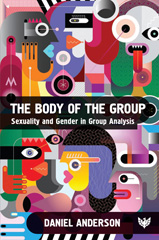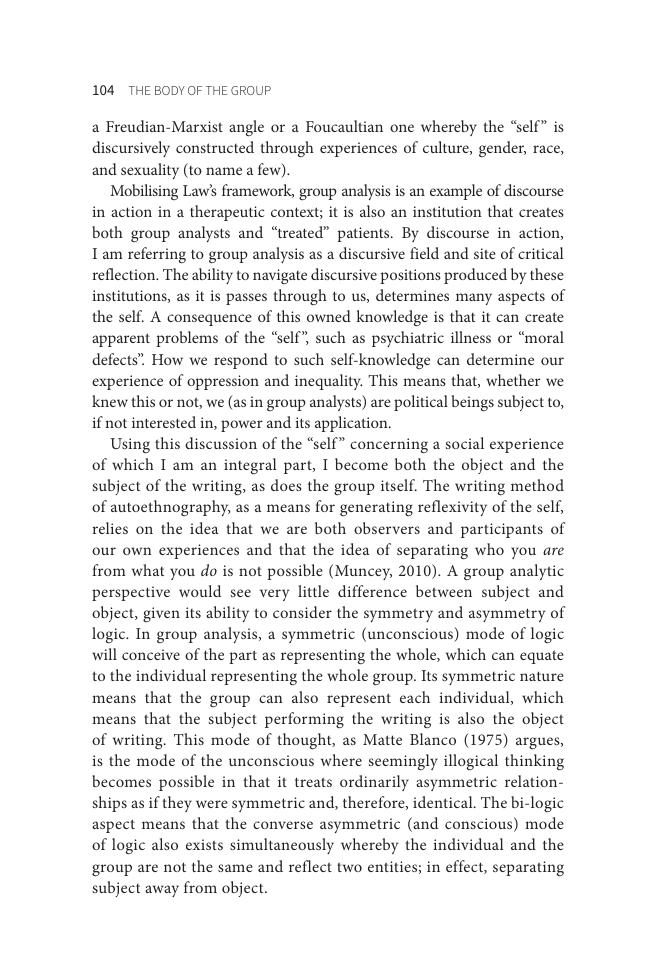The Body of the Group : Sexuality and Gender in Group Analysis
260 p.
The Body in the Group has been structured around the formation of a group analytic concept of sexuality, using the archaeology of Michel Foucault to move away from psychoanalytic theory, with its association to heteronormativity and pathology, on which group analysis has historically relied. The failure of group analysis to have its own theory of sexuality is, in fact, its greatest potential. It is a psychosocial theory that is able to contain failure in language and gaps in discourse, and, furthermore, can mobilise its creative potential in relation to the discourse of sexuality. Furthermore, using queer theory enables the failure of the term 'homosexual' by disrupting its association to heteronormativity and psychopathology that traditional psychoanalysis has emphasised. The potential of the group analytic matrix to disrupt and change discourse by conceiving of it using figurations and their associated political radicalism within language and discourse permits a radical conception of space and time. Bi-logi
c removes the potentially unhelpful competitive splits in power associated with the politics of sexuality and gender and, by doing so, enables multiple and contradictory positions of sexuality and gender to be held simultaneously. In addition, group analysis radically alters typical notions of ethics by being able to conceive of a psychosocial form of ethics. Likewise, queer theory raises an awareness for group analysis of the potential violence of its textual representation. Finally, analytic groups are 'figurations in action' when terms such as group polyphony, embodiment, discursive gaps, and norms (or no-norms) are mobilised alongside spatio-temporality and bi-logic. The group analytic literature so far has delimited sexuality and gender by over-reliance on psychoanalysis. Daniel Anderson, by utilising group analytic theory alongside the archaeology of Foucault and feminist, queer and education theory, has created an exciting and innovative way of working with sexuality in a group analysis setting. [Publi
sher's text].
Special access authorizations may apply; please contact us for further information.
-
Information
ISBN: 9781800130517
DISCIPLINES



